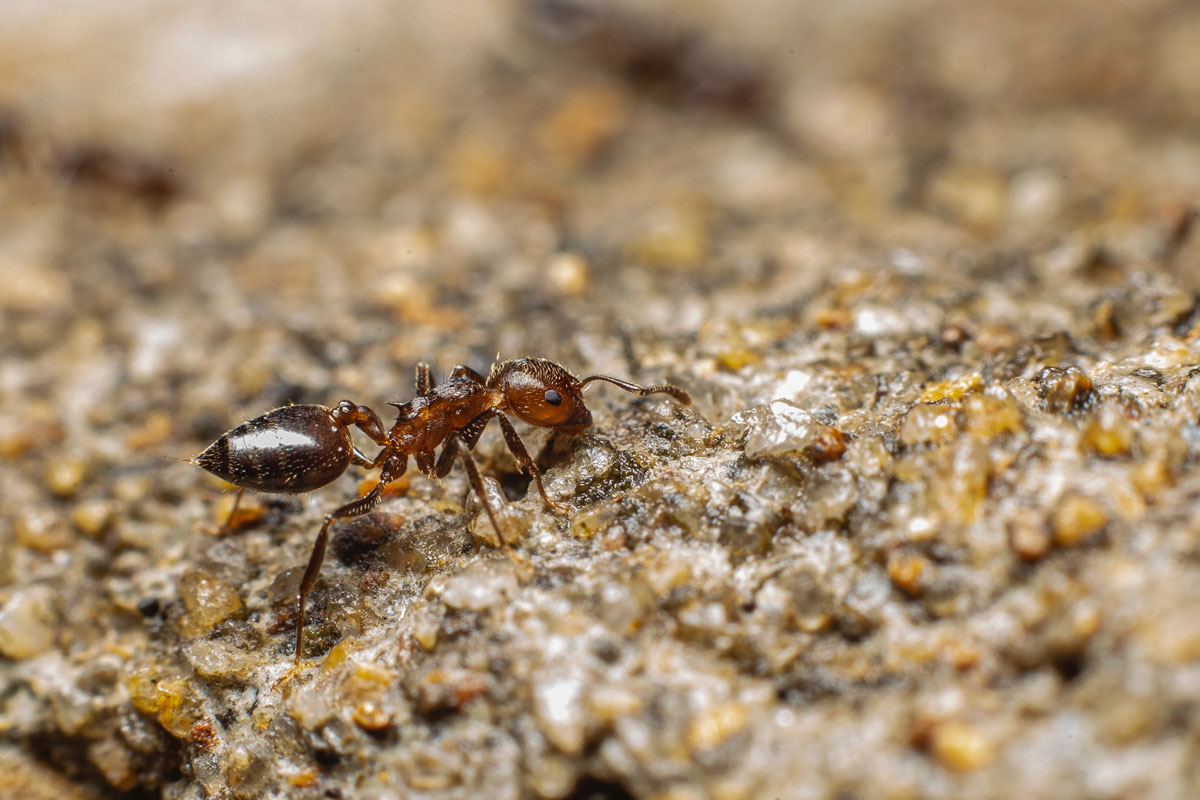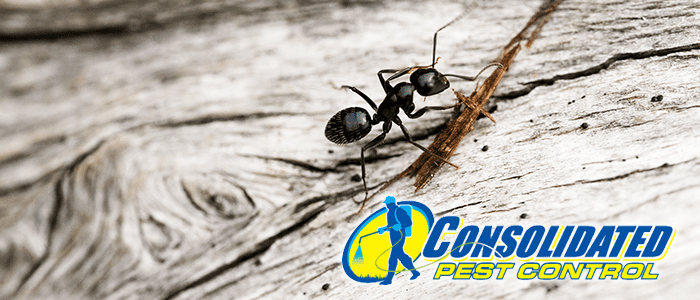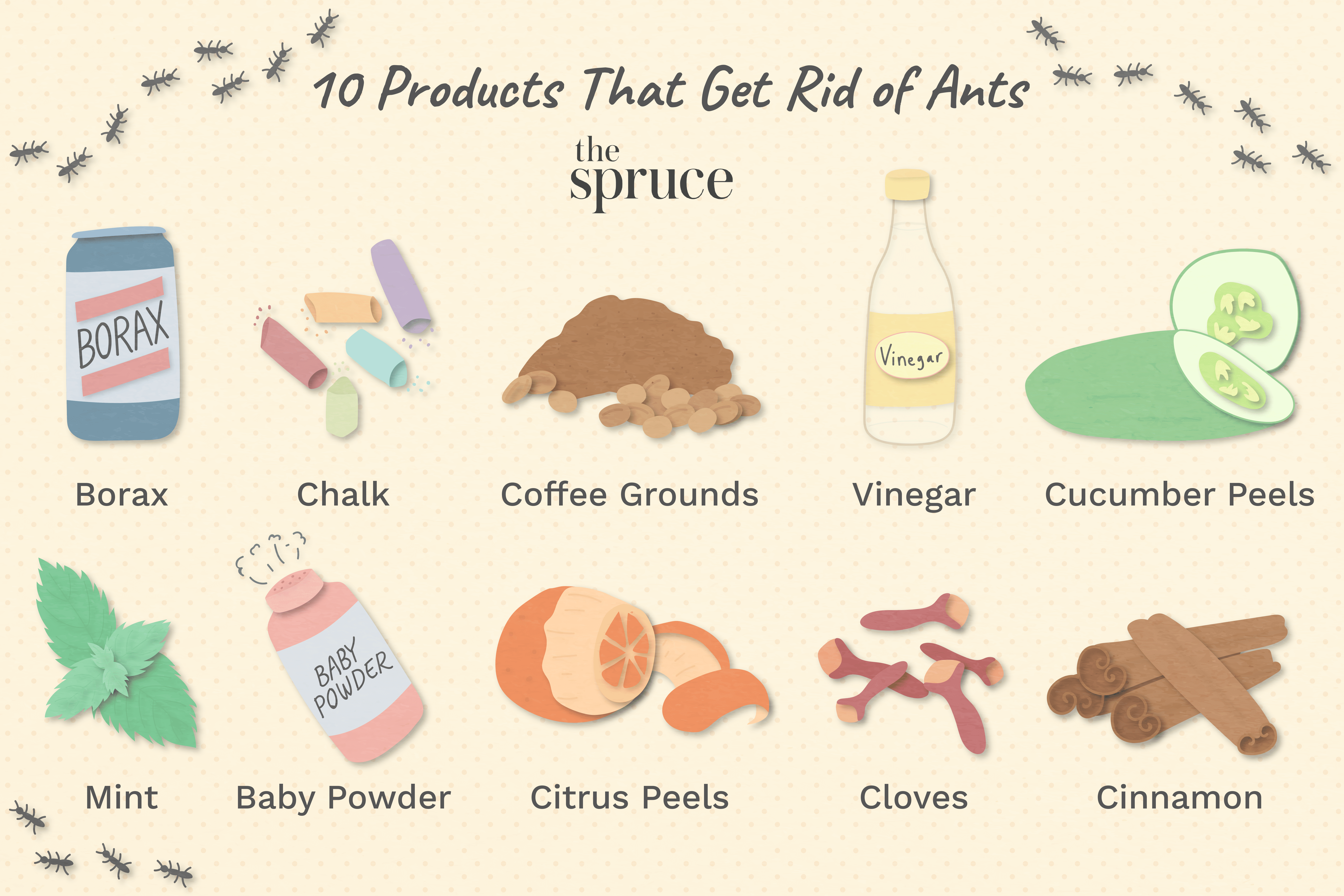To deter ants, use natural repellents like vinegar, lemon juice, or diatomaceous earth. Seal entry points and maintain cleanliness to prevent infestations.
Dealing with an ant invasion can be frustrating, but taking proactive measures can help keep these persistent insects at bay. Ants are attracted to food and moisture, so eliminating these attractants is crucial. Regularly wiping surfaces with vinegar or lemon juice creates an acidic barrier that ants avoid.
Sprinkling diatomaceous earth along ant trails and entry points is an effective, non-toxic option that physically deters ants. Remember, sealing cracks and crevices around your home minimizes entry opportunities for ants. Keeping your kitchen free from crumbs and spills is equally important in maintaining an ant-free environment. Always tackle the issue quickly, as ants can signal their findings to others, leading to larger problems if left unchecked.
Ant Infestation: A Common Household Issue
Ant infestations are a widespread problem that frustrate many homeowners. These tiny invaders can quickly take over a space, turning it into their new colony. Understanding why ants enter homes is the first step to keeping them out. This blog post explores common reasons for ant entry and effective strategies to identify problem areas.
Causes Of Ant Entry
Many factors contribute to ants marching into your home. Below are key reasons why ants might see your home as their next destination:
- Food sources: Leftover crumbs and sticky spills are a feast for ants.
- Moisture: Ants love damp areas, especially in bathrooms and kitchens.
- Cracks and crevices: Tiny openings invite ants inside.
- Scents: Food and trash odors attract ants from afar.
Identifying Problem Areas
Finding where ants enter and gather is crucial for control. Here is how you can identify these problem areas:
- Visual inspection: Look for ant trails leading to food or water sources.
- Moisture check: Locate damp spots or leaks around your home.
- Seal gaps: Use silicone caulk to close entry points around windows, doors, and walls.
- Regular cleaning: Maintain a clean environment to remove ant attractants.
:strip_icc()/ants-on-wood-ouside-home-fc98f4107966459191f6e9e74b249152.jpg)
Credit: www.bhg.com
Natural Remedies To Deter Ants
Are ants making a line to your home? No worries. Natural remedies can help.
There’s no need for harsh chemicals to tell ants to move on. Your kitchen holds the secret to keeping ants away the natural way.
Using Vinegar Solutions
Vinegar is not just for salad dressing anymore. Ants dislike its smell. It confuses their scent trails.
Mix equal parts water and vinegar. Put it in a spray bottle. Spritz around entry points. Repeat often for best results.
- Clean surfaces: Wipe down counters and floors.
- Spray the mixture: Along baseboards and windowsills.
- Refresh: Every few days to keep ants at bay.
Essential Oils As Repellents
Essential oils aren’t just for relaxation. They repel ants too.
Peppermint, tea tree, and lemon oils are top picks. Dip a cotton ball in oil. Place them where ants enter.
| Oil Type | Effectiveness |
|---|---|
| Peppermint | Disturbs ants’ smell |
| Tea Tree | Strong deterrent |
| Lemon | Disrupts scent trails |
Mix a few drops in water. Spray around the house. A natural barrier is formed. No ants will cross.
Homemade Ant Bait Strategies
Ant invasions can cause a stir in any home. Homemade ant bait strategies offer a simple and cost-effective solution. These DIY methods use common household ingredients to create effective ant killers. Let’s explore some proven recipes that will send the ants packing.
Sugar And Borax Mix
Combining sugar with borax can be a powerful ant lure. Ants can’t resist the sweet scent of sugar. Once they carry borax back to their nest, it proves fatal for the colony.
- Mix ½ cup of sugar with 1 ½ tablespoons of Borax.
- Add 1 cup of warm water, stirring until dissolved.
- Soak cotton balls in the mix and place them near ant trails.
Baking Soda And Powdered Sugar
Ants confuse baking soda for food, but it disrupts their internal chemistry. Powdered sugar acts as a sweet attractant.
- Mix equal parts of baking soda and powdered sugar.
- Spread the mixture near the ants’ entry points.
Commercial Ant Repellent Options
Ants in your space can be troublesome. Finding the right commercial ant repellent is key to sending them packing. These products range from baits to sprays. They target ants effectively. Let’s explore some popular options to reclaim your space from these tiny invaders.
Types Of Ant Baits
Ant baits work by attracting the ants to a toxin disguised as food. Worker ants carry the bait back to their nest. The entire colony eats it. This method can wipe out the whole nest.
Common types of ant baits include:- Gel baits: Easy to apply in crevices.
- Granular baits: Great for outdoor use.
- Bait stations: Safe around pets and children.
| Type | Location Use | Safety |
|---|---|---|
| Gel | Indoors | Moderate |
| Granular | Outdoors | High |
| Stations | Indoor/Outdoor | High |
Surface Sprays And Their Effectiveness
Surface sprays are easy to use. They act fast. Spray them on paths where ants travel. They can also work as a barrier to stop ants from entering homes.
Some benefits of surface sprays:- Instant action: Kills on contact.
- Long-lasting: Prevents new ants for weeks.
- Residual impact: Continues to kill new ants.
Always read labels for proper use. Keep sprays away from food surfaces and pets.
Food Storage Tips To Prevent Ants
Picture this: a kitchen free of ants, where every meal is a pleasure, and no tiny invaders ruin your day. Storing food the right way keeps these uninvited guests out. Let’s explore how to seal satisfaction into our pantries.
Proper Sealing Techniques
Ants have a keen sense for sniffing out snacks. A chip clip or a simple twist tie won’t do. Instead, think airtight to turn your kitchen into a fortress.
- Use plastic zipper bags for items like cereal and crackers.
- Wrap with cling film for an extra layer of protection.
- Vacuum sealing is ideal for long-term storage.
Effective Containers
Tupperware and glass jars aren’t just for show; they’re ant-repelling heroes. Invest in containers with secure lids. Your food stays fresh, and ants stay out.
| Contact with Air | Food Freshness | Ants’ Interest |
|---|---|---|
| Minimal | High | Low |
Remember, transparent containers let you see what’s inside without opening them. This means less chance of accidentally inviting ants over for a snack.
Ant-proofing Your Home
Imagine a home free of ant parades in the kitchen, peace without pesky invaders. Ant-proofing your home means creating a fortress that says “keep out” to ants. It starts with simple, yet effective steps to banish these critters for good. Let’s explore how to secure our homes against these unwelcome guests.
Seal Entrances And Cracks
Ants are tiny but mighty. They find the smallest openings and make their way in. Start by inspecting the perimeter of your home. Look for tiny gaps where ants might enter.
- Window frames might have small cracks—they’re a common entry point.
- Doorways should have weather stripping updated often.
- Use caulk to seal any fractures in walls or foundations.
- Vents and utility lines need checkups too. Seal gaps there as well.
Ants are deterred by a strong barrier. Ensure yours is foolproof.
Regular Cleaning Regimes
Cleanliness deters ants. They love crumbs and spills. A daily sweep keeps them at bay.
| Kitchen | Bathroom | General |
|---|---|---|
|
|
|
Ants won’t stay where there’s no food. Make sure they don’t find any.
Landscaping To Keep Ants At Bay
Landscaping to Keep Ants at Bay can be both a functional and aesthetic strategy for your garden. By choosing certain plants and maintaining cleanliness, a yard becomes less inviting to ants. Implementing these methods is a natural way to deter these unwelcome guests.
Plants That Repel Ants
Gardens can become fortresses against ants with the right plants. Ant-repellent plants emit scents that ants find unpleasant.
- Mint – Its strong fragrance deters ants.
- Lavender – Beautiful and repulsive to ants.
- Marigolds – Their scent keeps ants away.
- Garlic – Its aroma is an ant deterrent.
- Rosemary – A fragrant herb that ants dislike.
- Tansy – Its yellow blooms repel ants.
Integrating these plants into your landscape helps create an ant-resistant garden.
Maintaining A Clean Yard
A clean yard is essential for ant control. Food leftovers and debris attract ants.
- Regularly sweep patios and decks.
- Keep food in sealed containers.
- Clear out yard waste and fallen fruits.
Maintain trimmed lawns and pruned plants. Regular inspections for nests or ant activity are vital. A tidy yard is less likely to harbor ants.

Credit: h2pestcontrol.com
Professional Pest Control
If ants have made their way into your home, it’s not just a nuisance—it’s an invasion. While there are various home remedies and DIY solutions, some infestations require the big guns. Professional pest control brings experience, expertise, and specialized tools to the battle against ants.
When To Call The Experts
Timing is everything in ant control. Consider professional help if:
- Infestations persist despite DIY efforts.
- Ant colonies seem to multiply quickly.
- DIY solutions pose a risk to pets or children.
- Sensitive areas like food storage need treatment.
- You suspect the presence of dangerous ant species.
What To Expect From Professional Services
When professionals step in, you can expect a thorough and efficient process:
- Inspection: Experts assess the extent of your ant problem.
- Identification: They determine the ant species and nesting sites.
- Treatment plan: Custom solutions are crafted for your unique situation.
- Execution: Safe and effective methods are used to eliminate ants.
- Follow-up: Continued support ensures ants don’t return.

Credit: consolidatedpestcontrol.com
Frequently Asked Questions On What To Put For Ants To Go Away
What Are Natural Repellents For Ants?
Natural repellents for ants include vinegar, lemon juice, and peppermint oil. Sprinkling cinnamon, coffee grounds, or chili pepper around affected areas can also deter ants. These substances disrupt the ants’ scent trails and discourage their return.
How Does Baking Soda Remove Ants?
Baking soda, when mixed with powdered sugar, can be an effective ant killer. The sugar attracts the ants, while the baking soda reacts with their acidic digestive systems causing them to perish. Sprinkle the mix near ant trails and entry points.
Can Certain Plants Keep Ants Away?
Yes, some plants like peppermint, lavender, and tansy act as natural ant deterrents. Their strong scents mask scent trails that ants use to navigate. Planting these around your home can help reduce ant infestations.
Do Coffee Grounds Repel Ants Effectively?
Coffee grounds are a known ant repellent. The strong smell masks their scent trails, disorienting the ants. Scatter used coffee grounds around your garden and along the perimeter of your home to deter ants.
Conclusion
Bidding farewell to ants doesn’t require harsh chemicals or expensive exterminators. Simple ingredients, like citrus peels and vinegar, can be powerful deterrents. Remember, cleanliness is crucial in keeping these pests at bay. Embrace these natural solutions and reclaim your ant-free space with confidence.
Stay persistent, and enjoy a serene, ant-less home environment.

I’m MD Tanvir, and I bring years of expertise gained from working closely with pest control companies to the forefront. My journey in the industry has inspired me to launch Bug Battler, a platform aimed at equipping people with the know-how to combat pests autonomously. Through Bug Battler, I aim to empower individuals with practical insights to tackle pest infestations effectively.

